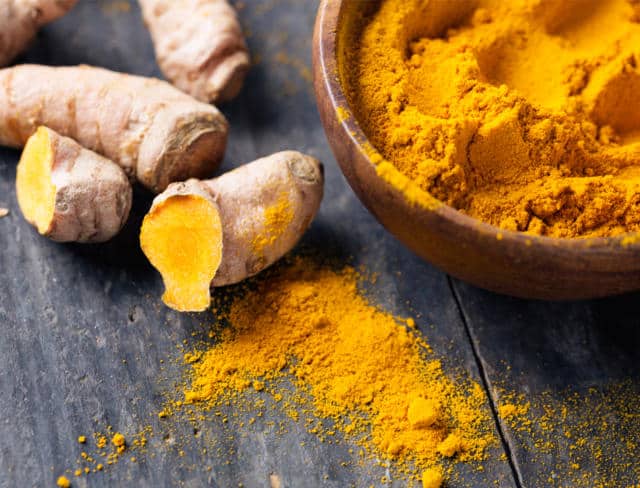written by:
reviewed by:

Although over-the-counter, nonsteroidal medications are effective for pain relief, you might also consider natural pain-relief remedies that aren’t as harsh on your body to process, especially if you suffer from a chronic condition.
As always, before taking anything new, educate yourself by talking with your doctor about how a supplement could interact with your body or with your prescription medications. And remember to purchase supplements from a reputable source, following the dosage instructions.
CBD
Cannabidiol (CBD) for pain relief has gone mainstream. A naturally occurring chemical found in cannabis, CBD applications can be used to combat pain without experiencing the high feeling associated with the THC compound found in marijuana. A wonderful alternative to opioids, CBD is non-habit forming and works with the endocannabinoid system in the brain to dull pain receptors. The research on CBD products for pain management is still growing, so expect to see a lot more information coming out soon. Although it can come in many forms, CBD oil can be applied topically, taken under the tongue, or put in your favorite smoothie if you don’t like the taste.
Turmeric
The vibrant, yellow spice made famous by Indian and Moroccan dishes, turmeric (containing the antioxidant compound curcumin), helps protect the body from free radicals that can damage cells and tissue. Although turmeric is considered an ancient anti-inflammatory agent and wound healer, recent studies have shown that it indeed does have antioxidant and anti-inflammatory effects on the body. It would be quite challenging to get all the benefits you need from the spice itself, which is why its recommended in supplement form.
Omega 3
Research has shown that omega-3 polyunsaturated fatty acids are extremely effective anti-inflammatory agents. Because the properties found in fish oil can reduce vascular inflammation, the American Heart Association now recommends fish and fish oil supplements for the prevention of coronary heart disease. It is also recommended for arthritis sufferers but shouldn’t be taken with blood thinners. Fish oil supplements (containing DHA and EPA), can ease the pain associated with joint stiffness. Interestingly, studies have also shown that lower levels of depression are seen in people who live in countries where people eat more fish.
Proteolytic Enzymes
Proteolytic enzymes, naturally found in many foods, are also a popular supplement that can be taken for digestive health. However, these enzymes are also critical in the processes of cell division, blood clotting, and immune function. These supplements come in a variety of forms and will contain either plant- or animal-derived enzymes. Many studies have also shown that proteolytic enzymes can aid in inflammation related to pain, swelling, and joint inflammation. Additionally, bromelain, a type of proteolytic enzyme, has been known to help nasal passage inflammation associated with sinusitis.
White Willow Bark
White willow bark is well known as “nature’s aspirin.” Considered an ancient remedy for pain relief that has stood the test of time, willow bark acts similarly to aspirin, an analgesic (pain reliever). The active ingredient, salicin, it said to reduce pain by interacting with the nerves. Although costlier than aspirin, it has been shown to have fewer side effects on the gastric system; however, it should never be used on children. You can consume white willow bark in tea and supplement form.
Sources:
- https://www.ncbi.nlm.nih.gov/pmc/articles/PMC3011108/
- https://www.healthline.com/health/cbd-oil-for-pain
- https://www.healthline.com/nutrition/proteolytic-enzymes
- https://www.healthline.com/health/willow-bark-natures-aspirin
- https://www.healthline.com/nutrition/top-10-evidence-based-health-benefits-of-turmeric
- https://www.healthline.com/health/arthritis-fish-oil-omega-3
The information provided on Health Food Radar is intended for general informational purposes only. While we strive to offer accurate and up-to-date content, we do not provide medical advice, diagnosis, or treatment. Always consult with a qualified healthcare professional before making any dietary or lifestyle changes, especially if you have underlying health conditions or concerns.



